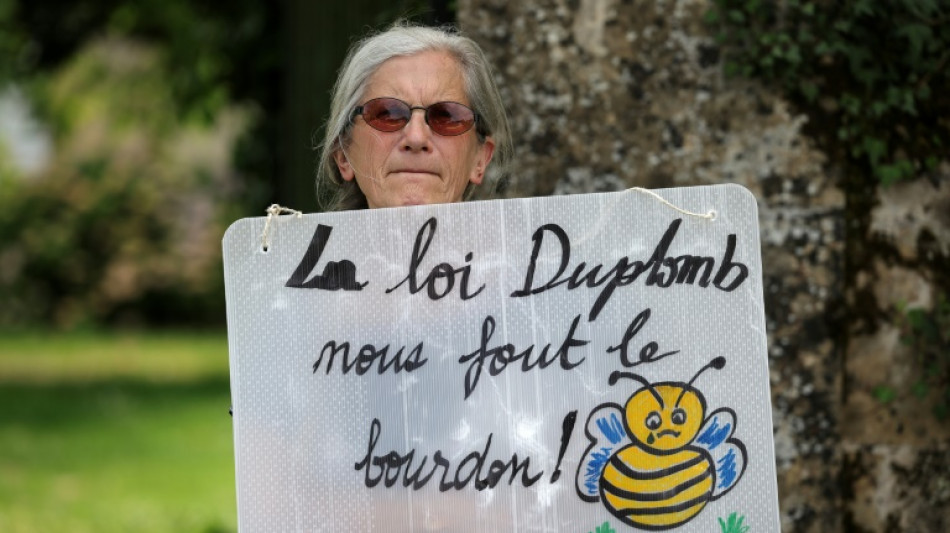
RYCEF
-0.0600


More than a million people had by Sunday signed a petition urging the French government to ditch a law allowing the reintroduction of a banned pesticide known to kill bees.
The so-called "Duplomb law" has stirred public anger for permitting a return of acetamiprid -- a chemical known to be toxic to pollinators such as bees and to ecosystems. It was adopted on July 8 but has not yet come into effect.
A 23-year-old master's student launched the petition against the law on July 10, with support quickly snowballing with the backing of many including actors and several left-wing lawmakers. More than 500,000 people signed it in 24 hours from Saturday and Sunday alone.
The law's proponents however argue farmers face too much regulation in France as is, and allowing them to use acetamiprid again would help reduce the constraints they face.
National Assembly Speaker Yael Braun-Pivet on Sunday ruled out abandoning the legislation, named after the conservative lawmaker who proposed it, as it would "save a certain number of our farmers".
The petition's author, Eleonore Pattery, who describes herself as "a future environmental health professional", called the new law a "scientific, ethical, environmental and public health aberration".
"It represents a frontal attack on public health, biodiversity, the coherence of climate policies, food security, and common sense," she said.
- 'Bee killer' -
Acetamiprid has been banned in France since 2018, but remains legal within the European Union.
The insecticide is particularly sought after by beet and hazelnut growers, who say they have no alternative against pests and face unfair competition.
On the other hand, beekeepers have branded the chemical "a bee killer".
Its effects on humans are also a source of concern but, in the absence of large-scale studies, its risks remain unclear.
The petition calls for the "immediate repeal" of the law and a "citizen-led consultation involving health, agricultural, environmental and legal stakeholders".
Petitions do not in themselves trigger a review or repeal of the legislation but unprecedented public support may prompt renewed parliamentary discussion on the matter.
Under French rules, if a petition reaches 500,000 verified signatures, the National Assembly may choose to hold a public debate limited to the content of the petition itself.
Speaker Braun-Pivet told the broadcaster franceinfo on Sunday she would be in favour of such a debate, but lawmakers "could not in any case go back on the law which has been voted through".
In late June, ahead of the law's passage, several thousand demonstrators -- including farmers, environmental organisations and scientists -- rallied across France calling for the bill to be withdrawn.
L.Johnson--ThChM